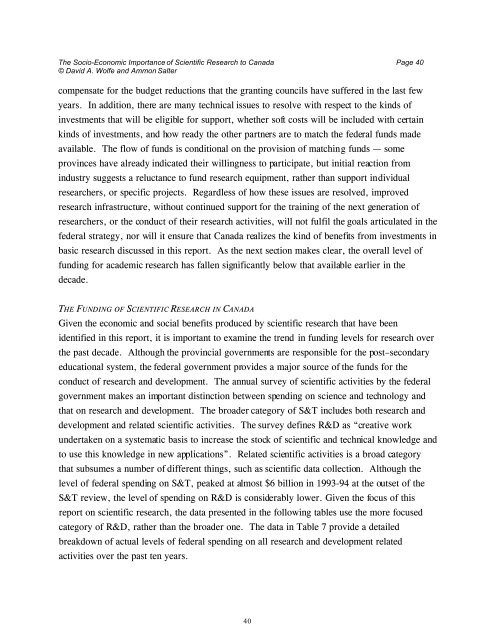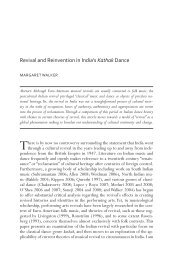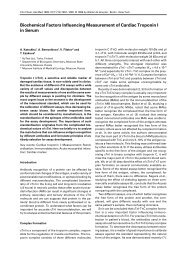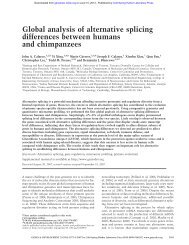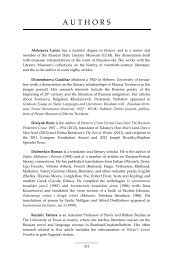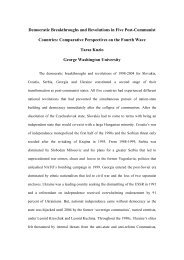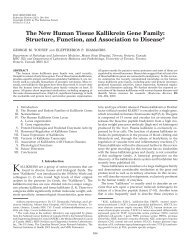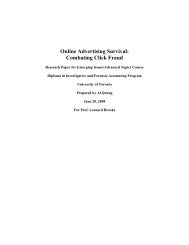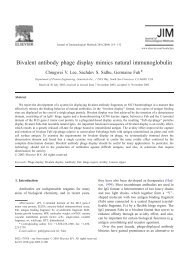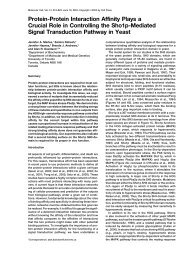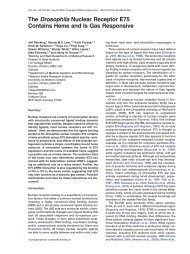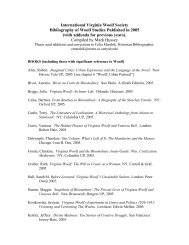The Socio-Economic Importance of Scientific Research To Canada
The Socio-Economic Importance of Scientific Research To Canada
The Socio-Economic Importance of Scientific Research To Canada
You also want an ePaper? Increase the reach of your titles
YUMPU automatically turns print PDFs into web optimized ePapers that Google loves.
<strong>The</strong> <strong>Socio</strong>-<strong>Economic</strong> <strong>Importance</strong> <strong>of</strong> <strong>Scientific</strong> <strong>Research</strong> to <strong>Canada</strong> Page 40© David A. Wolfe and Ammon Saltercompensate for the budget reductions that the granting councils have suffered in the last fewyears. In addition, there are many technical issues to resolve with respect to the kinds <strong>of</strong>investments that will be eligible for support, whether s<strong>of</strong>t costs will be included with certainkinds <strong>of</strong> investments, and how ready the other partners are to match the federal funds madeavailable. <strong>The</strong> flow <strong>of</strong> funds is conditional on the provision <strong>of</strong> matching funds — someprovinces have already indicated their willingness to participate, but initial reaction fromindustry suggests a reluctance to fund research equipment, rather than support individualresearchers, or specific projects. Regardless <strong>of</strong> how these issues are resolved, improvedresearch infrastructure, without continued support for the training <strong>of</strong> the next generation <strong>of</strong>researchers, or the conduct <strong>of</strong> their research activities, will not fulfil the goals articulated in thefederal strategy, nor will it ensure that <strong>Canada</strong> realizes the kind <strong>of</strong> benefits from investments inbasic research discussed in this report. As the next section makes clear, the overall level <strong>of</strong>funding for academic research has fallen significantly below that available earlier in thedecade.THE FUNDING OF SCIENTIFIC RESEARCH IN CANADAGiven the economic and social benefits produced by scientific research that have beenidentified in this report, it is important to examine the trend in funding levels for research overthe past decade. Although the provincial governments are responsible for the post–secondaryeducational system, the federal government provides a major source <strong>of</strong> the funds for theconduct <strong>of</strong> research and development. <strong>The</strong> annual survey <strong>of</strong> scientific activities by the federalgovernment makes an important distinction between spending on science and technology andthat on research and development. <strong>The</strong> broader category <strong>of</strong> S&T includes both research anddevelopment and related scientific activities. <strong>The</strong> survey defines R&D as “creative workundertaken on a systematic basis to increase the stock <strong>of</strong> scientific and technical knowledge andto use this knowledge in new applications”. Related scientific activities is a broad categorythat subsumes a number <strong>of</strong> different things, such as scientific data collection. Although thelevel <strong>of</strong> federal spending on S&T, peaked at almost $6 billion in 1993-94 at the outset <strong>of</strong> theS&T review, the level <strong>of</strong> spending on R&D is considerably lower. Given the focus <strong>of</strong> thisreport on scientific research, the data presented in the following tables use the more focusedcategory <strong>of</strong> R&D, rather than the broader one. <strong>The</strong> data in Table 7 provide a detailedbreakdown <strong>of</strong> actual levels <strong>of</strong> federal spending on all research and development relatedactivities over the past ten years.40


